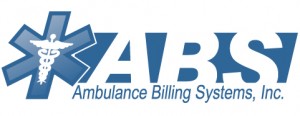Poor procedures lead to fraud investigations
Poor procedures lead to fraud investigations
Having touched on the matter of fee schedules and coding errors, this week ABS Inc. will discuss the procedural errors that also create problems for Emergency Medical Services.
Procedural errors are the most common error for fire departments and are caused mostly due not being familiar with insurance and Medicare regulations with regards to Ambulance transport but as always, Medicare will not accept regulation ignorance as a defense. Medicare also considers information published in the Federal Register, newsletters and carrier billing manuals as adequate billing and charges procedures so the onus is very much on the ambulance services to ensure and up to date copy of their carrier’s manual is in place and further ensure a careful review of the section updates in newsletters.
Fire departments are also somewhat negligent when it comes to submitting claims that are not supported with signature authorization documents, HCFA 1500 & 1491 claim forms. Not only are these claims considered as fraudulent by Medicare and insurance companies, it may also be considered as mail fraud.
If an insurance company or Medicare carrier request a signature authorization form and the fire department cannot produce it, monies made for that claim will almost certainly need to be refunded. If a fire department is audited by a Medicare carrier and it is discovered that it is routine to not provide the forms the carrier is likely to request further investigation at the Office of Inspector General. Medicare has authority to recover monies paid out for each Medicare transport for a period of three years prior to the date of the investigation.
ABS Inc. will continue of the procedural errors next week to highlight further common practices that rebounding on departments create problems, fines and reimbursements that should never have been necessary in the first instance.

